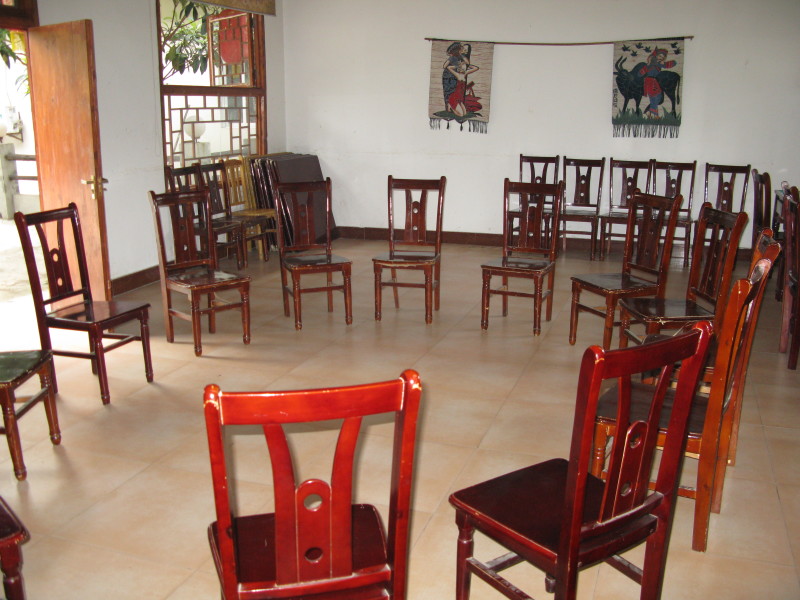I have been keeping this post in the pipeline for a few weeks, before the earthquake in Japan, and before the revolution in Libya kicked off. It’s been sitting in my head for a long time, probably since my time as an aid worker in post-earthquake Sichuan (China) where I was asked to train Chinese key-workers, who would provide group counselling to local teachers. I was told that we had to do this ‘because many teachers didn’t want to talk about the earthquake’. There had to be reasons why did not want to talk about it with a stranger. So I taught basic mindfulness skills (simple breathing practices) to a Chinese counsellor, who would then work directly with teachers, rather than marching in with Western counselling or group therapy.
 Numerous studies now tell us that getting survivors of natural disasters or other traumatic events to sit in a circle and talk about their experience, is not necessarily part of the healing process. Nevertheless Critical Incident Stress Debriefing (CISD) is still heavily used by aid agencies who ship in counsellors and psychologists soon after a traumatic event to get people to talk. I’ve seen this myself in Gaza in 2008, and was asked to go to Haiti to debrief Haitians after the earthquake. I turned down the mission precisely because I know that psychological interventions immediately following similar disasters are not helpful.
Numerous studies now tell us that getting survivors of natural disasters or other traumatic events to sit in a circle and talk about their experience, is not necessarily part of the healing process. Nevertheless Critical Incident Stress Debriefing (CISD) is still heavily used by aid agencies who ship in counsellors and psychologists soon after a traumatic event to get people to talk. I’ve seen this myself in Gaza in 2008, and was asked to go to Haiti to debrief Haitians after the earthquake. I turned down the mission precisely because I know that psychological interventions immediately following similar disasters are not helpful.
My research, and my first-hand experience in China with earthquake survivors, taught me that CISD and post-disaster counselling are part of an old way of dealing with traumatic events. Many people are equipped with the resources and resilience to face such tragedies. Initial sorrow and pain are the normal reaction to loss. We need to take the research on CISD seriously and embrace new ways of intervening when it comes to mental health. Psychological First Aid (PFA) may be a new way to bring a common-sense approach to people’s distress – whether they are staff or members of the local community – by attending to their immediate basic needs in terms of shelter, food, security, contacting loved ones, etc.
Sometimes no immediate formal psychological intervention is the best thing. Though unfortunately aid agencies feel compelled to do something. In 2009 the Tibetan province of Yushu was hit by an earthquake. I had been visiting the region the year before and appreciated the deep Buddhist spirituality that imbued its people. Immediately after the earthquake aid agencies were keen to move in with mental health projects to relieve the psychological suffering of the Tibetans. Such approach is full of good intentions, but without meaning to, it disregards people’s resilience and the capacity of local communities to support each other.
In 2008 Abruzzo (Italy) was hit by an earthquake. Being Italian myself, I then wondered what the people of that region would have made of an army of Chinese counsellors visiting the various villages in the Apennines, and offering therapy in Chinese through a translator. We might think it sounds funny, but this is what some Western NGOs do when natural disasters such as the one in Sichuan, Yushu, Haiti, or Japan occur. We want to help, of course, but is this the best way for long-term psychological healing?
The research on CISD and post-disaster counselling is clear in stating that such interventions are at best useless. Some even conclude that they are potentially harmful. How about starting to explore alternatives?
***
A useful link to an interview with Prof Scott Lilienfeld on Japan and psychological intervention and to an article on the myths of post-disaster counselling

